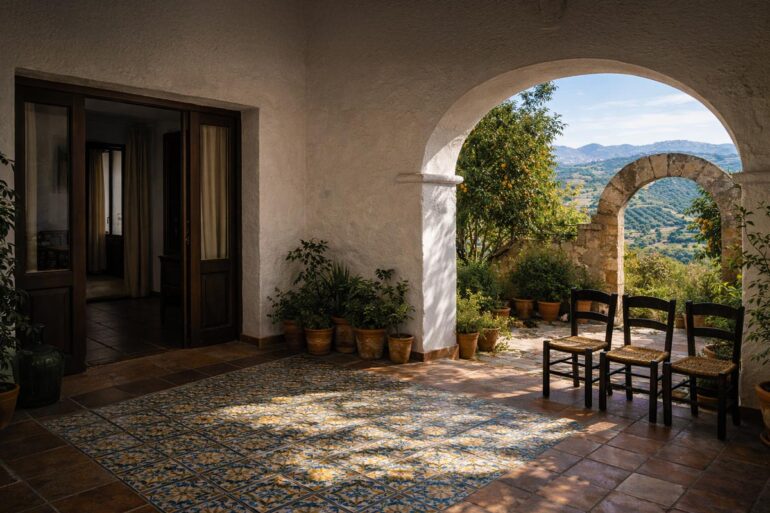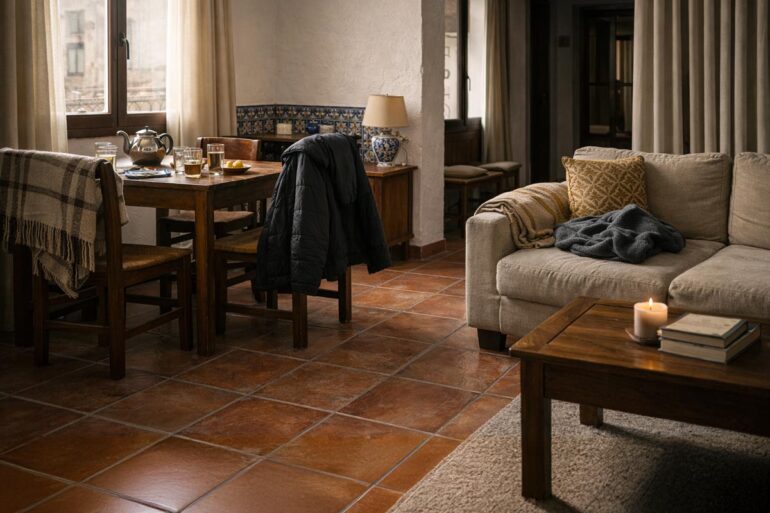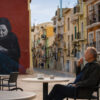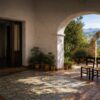Listeners:
Top listeners:
00:00
00:00
volume_up
chevron_left
-
 play_arrow
play_arrow
Costa Blanca Radio The Sound Of The Costa
-
 play_arrow
play_arrow
FeelGood Radio The Sound Of The Costa
music_note

share
close
In the summer months, my patio belongs to the evenings. There, beneath the scent of jasmine and the rustle of olive trees in the breeze, stands a wooden table with a few weathered chairs. Nothing fancy. But on that table, there’s almost always a bottle of wine. Sometimes a local tempranillo, sometimes something I’ve dropped into a supermarket basket out of pure curiosity.
The beauty of it is that the bottle simply belongs there. Just like the flower pots, the solar-powered lamp and the dog strategically stretched out under the table. In Spain, wine lives with the house — and it often starts outdoors.
 Wine in the patio: the social heart of the home
Wine in the patio: the social heart of the home
In Spain, a patio isn’t a showpiece — it’s an extension of daily life. Here, you don’t just “have a glass of wine” — you share stories, afternoons and silences. More and more expats are consciously making space in their homes for wine: a wooden rack against the wall, a small cooler in a shaded corner, or simply a sturdy shelf with glasses hanging below. You don’t need to build a bodega to create a sense of richness. Sometimes one bottle is enough — as long as you share it with the right people.
A wine corner in the kitchen: small but well considered
In my previous home — a 40-square-metre flat in London — I had exactly two bottles of wine and a tea towel printed with a map of Rioja. Now I see how those small corners in Spanish kitchens serve the same purpose. A niche in the wall, an antique cabinet with a row of glasses, or a cleverly built-in wine fridge: wine quite literally lives with the house. Not as a showpiece, but as a natural part of cooking, tasting and dining.
The bodega under the stairs (or villa): when wine is taken seriously
Sometimes I visit friends out in the campo where wine holds a serious place. Beneath their villa lies a carefully cooled room, with racks of local wood, a stone floor, and that unmistakable scent of damp earth and cork. These aren’t museums — they’re working spaces. Wine is tasted, stored, shared. And the best part: those bodegas are rarely perfect. There’s always a forgotten bottle from 2016 that no one remembers whether it’s brilliant or terrible. But that’s exactly what makes it charming. No snobbery — just wine that grows along with life itself.
Tables where the bottles open themselves
What I’ve noticed since moving back to Andalusia is that wine here is rarely announced. You sit at the table, bread is broken, someone fetches glasses — and before you know it, a bottle is open. Or two. It’s part of the rhythm. No ceremony, no fuss. And yet, precisely because of that, the wine often tastes better than in any fine-dining restaurant. Maybe because it’s carried by the moment — by the conversation, your neighbour’s joke, and your sister-in-law’s wink.
Conscious choices: wine storage with an eye for sustainability
For those who want to take it a step further, sustainable wine storage is on the rise. Think of cool, cleverly designed spaces without energy-hungry appliances. Or wine cabinets made from recycled wood, and corks sourced from local producers. I know people who combine their wine storage with shelves for herbs, bottles of oil and homemade liqueurs. It doesn’t have to be grand. But the idea of creating a place in your home where flavour, tradition and sustainability meet — that’s exactly what Casa y Vida is all about.
A home where wine feels natural
In my finca, the corkscrew is never far away. Not because I drink every day — far from it — but because wine in this house isn’t placed on a pedestal. It simply belongs. Just like dusk, the scent of thyme in the garden, and the sound of a distant guitar. And when you pour a glass at the end of the day, you realise: this isn’t a moment of luxury, but a moment of life.
This story is part of the The Sound Of The Costa Wine Special . All month long, the stories on CostaLifestyle are dedicated to wine — in collaboration with Grupo BonAmb.
Written by: Lucas Martínez
expat life Spain Spanish patio wine wine and living wine at home wine cellar design wine culture Spain wine month wine storage
Rate it
Similar posts
© 2025 The Sound Of The Costa; All Rights Reserved







